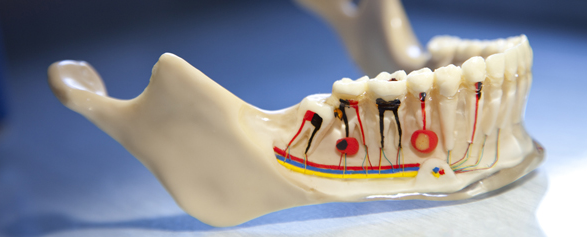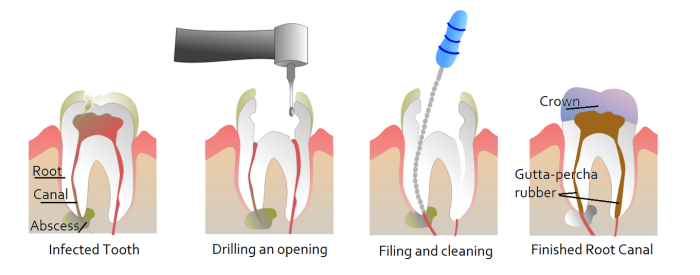MYTH #1: Root Canal Treatments Are Painful
Typically, it isn’t that the actual root canal treatment is painful—rather, the irreversible condition that is requiring the treatment is far from comfortable in the first place! Most people who have root canal therapy admit that the pain they experienced was prior to the procedure, not during it… And, they felt so much better after.
MYTH #2: Root Canals Always Require Several Appointments
Some cases require a tooth to be restored after the root canal is completed, but these appointments are not part of the actual root canal process.
If you are already scheduled for root canal therapy with one of our doctors, and if you’re experiencing discomfort, here are a few ideas from our friends at eHow:
MYTH #4: Root Canal Therapy Isn’t Necessary Until Your Tooth Hurts
Teeth in need of root canal therapy don’t always hurt. In fact, some dead teeth may just require a root canal to prevent infection. You may have a tooth in need of a root canal and not even know it.MYTH #5: The Benefits of Root Canal Therapy Don’t Last Long
This fifth myth probably starts with people who have had a tooth crack at some point after having had a root canal treatment. While it’s true that when a nerve is removed from a tooth, the blood supply is eliminated and the tooth can become brittle—making it more fragile and susceptible to cracking. Technically, this means that although the complete restoration solution may need to be examined, it doesn’t mean that root canal therapy doesn’t “last”.
Original Source: http://martinandshengdentalblog.com/2011/05/general-information-root-canal-therapy/


